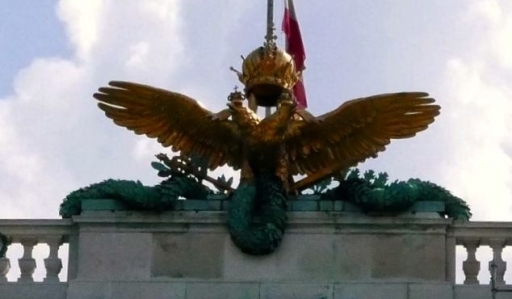America extended its First World War involvement as 1917 drew to a close, declaring war on Austria-Hungary.
During his annual State of the Union address on 4 December 1917 Woodrow Wilson first voiced his opinion that war with Austria-Hungary should be formally proclaimed.
In a speech necessarily dominated by events in Europe, the President described the Dual Monarchy as ‘the vassal of the German government….the instrument of another nation.’ His concerns about the empire’s status as a belligerent had been heightened during the autumn by its armies’ successes in the field against Italy at the Battle of Caporetto. He joined Britain and France in fearing the reverse could prompt the Italians to leave the war.
So it was that, eight months after asking Congress for its approval for war on Germany, President Wilson found himself recommending that that war be extended to its ally. ‘We must meet its force with our own and regard the Central Powers as but one’, he told the assembled gathering.
Three days later, after short debates in both houses, Joint Resolution 169 was adopted unanimously by the Senate and approved by the Houses of Representatives by a vote of 350 to 1.
‘A state of war is hereby declared to exist between the United States of America and the Imperial and Royal Austro-Hungarian Government’, it said. The President was ‘hereby authorised and directed to employ the entire naval and military forces of the United States and the resources of the Government to carry on war.’
Later that day, 7 December 1917, Woodrow Wilson formally signed the declaration.
Images: Centenary News
Posted by: CN Editorial Team
